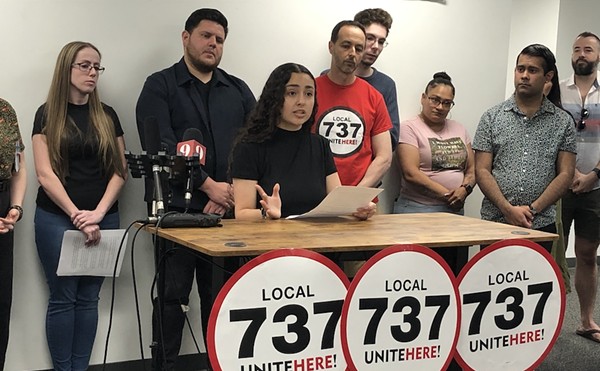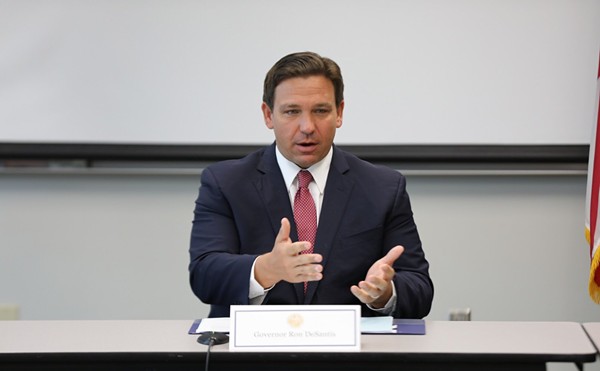I don't have the money yet. But I do have the notice informing me of the "status and amount of (my) immediate tax relief." Sometime this week I "will be receiving a check in the amount of $600." (Hopefully, the government won't send it by way of Pittsburgh, where the Mellon Bank, a former subcontractor for the IRS, recently misplaced about $810 million in federal income tax payments!)
The irony, of course, is that my family won't be able to spend our $600 on "getting the economy moving again." You see, several days after getting "tax relief," I'm going to have to file quarterly estimated taxes. I figure it should run us about ... $600. Oh well. Easy come ... easy go. My thinking is: If the government was really serious about "tax relief," it would abolish the IRS altogether.
Now, don't get me wrong. I'm not one of those crazy tax rebels who believes that Americans shouldn't be paying any taxes at all. In fact, I'd be happy to pay even MORE taxes -- if I thought the money would be going to universal health insurance, for instance, rather than a missile defense system. But I've come to agree with all the disgruntled citizens who feel that the present income-tax system is an enormous, unruly dinosaur. Let's replace it with something more reasonable and less expensive. How about a national sales tax?
Consider: The federal income tax, which became the Constitution's 16th amendment in 1914, was fairly simple. The tax return consisted of only one page, and the entire tax code itself consisted of only 14 pages. Today's tax code contains 2,000 pages of law, 6,000 pages of regulations and hundreds of thousands of pages of rulings and interpretations. The IRS publishes 480 tax forms and 280 forms to explain them.
It's estimated that American citizens annually spend more than 5.4 billion hours filling out tax forms -- and at least $250 billion attempting to comply with the largely unfathomable code. The IRS itself costs $8 billion a year to operate and employs more investigative agents than the FBI and the CIA combined. Yet, at least $100 billion a year is fraudulently held back, as individuals and corporations alike successfully cheat the system.
How would a national sales tax be an improvement?
First: It is more efficient. It replaces the unwieldy IRS with an augmented state collection system. Forty-five states already collect sales taxes. They would continue to do so, simply passing along the federal portion to the U.S. government. Individuals and businesses would no longer have to spend huge amounts of time filling out and filing returns.
Second: It is easy to understand. It replaces the tangled code with a simple, visible, clearly stated burden. Various formulas ranging from 10 percent to 23 percent have been promulgated; they depend on which other taxes will be eliminated or replaced, what kinds of rebates there might be for the poor and elderly, or what kinds of exemptions -- for food, housing and medicine -- may be created.
Third: It prevents the government from intruding into the private affairs of citizens via audits, investigations, tax courts, penalties and punishments.
Fourth: It encourages freedom and productivity while rewarding savings and investment. The costs of corporate-tax compliance would be redirected to higher wages and lower prices for goods and services. Also, a sales tax would give the people the first use of their earnings rather than the government (no more withholding taxes).
Fifth: It discourages cheating and forces the billions of dollars of current black-market and underground revenue into the system. There would be no need to hide or shelter income. For the first time, nonfilers would pay their fair share.
Sixth: It is cheaper. The IRS and its 144,000 employees no longer would be needed. And the country's plethora of expensive tax preparers, attorneys, clerks and bookkeepers would have to close up shop, saving Americans hundreds of billions of dollars per year.
Seventh: It stimulates the economy. By eliminating tax-compliance costs, it would make U.S. manufacturers more competitive with overseas companies. It would also create jobs by attracting more investment -- both foreign and domestic.
Eighth: It is fair. Instead of a politically manipulated tax code with thousands of special-interest loopholes, taxes would be based upon lifestyle and consumption habits. It would lower tax burdens on the working poor (with the right exemptions and exclusions) while continuing to exact a higher duty from the well-off.
Finally, it would be impossible to lose my taxes in Pittsburgh. Unless, of course, I go there to shop.



















